Jack Daniel's vs. a dog toy?
A unique Supreme Court case involving a famous whiskey brand and a not-so-famous maker of squeaky dog toys

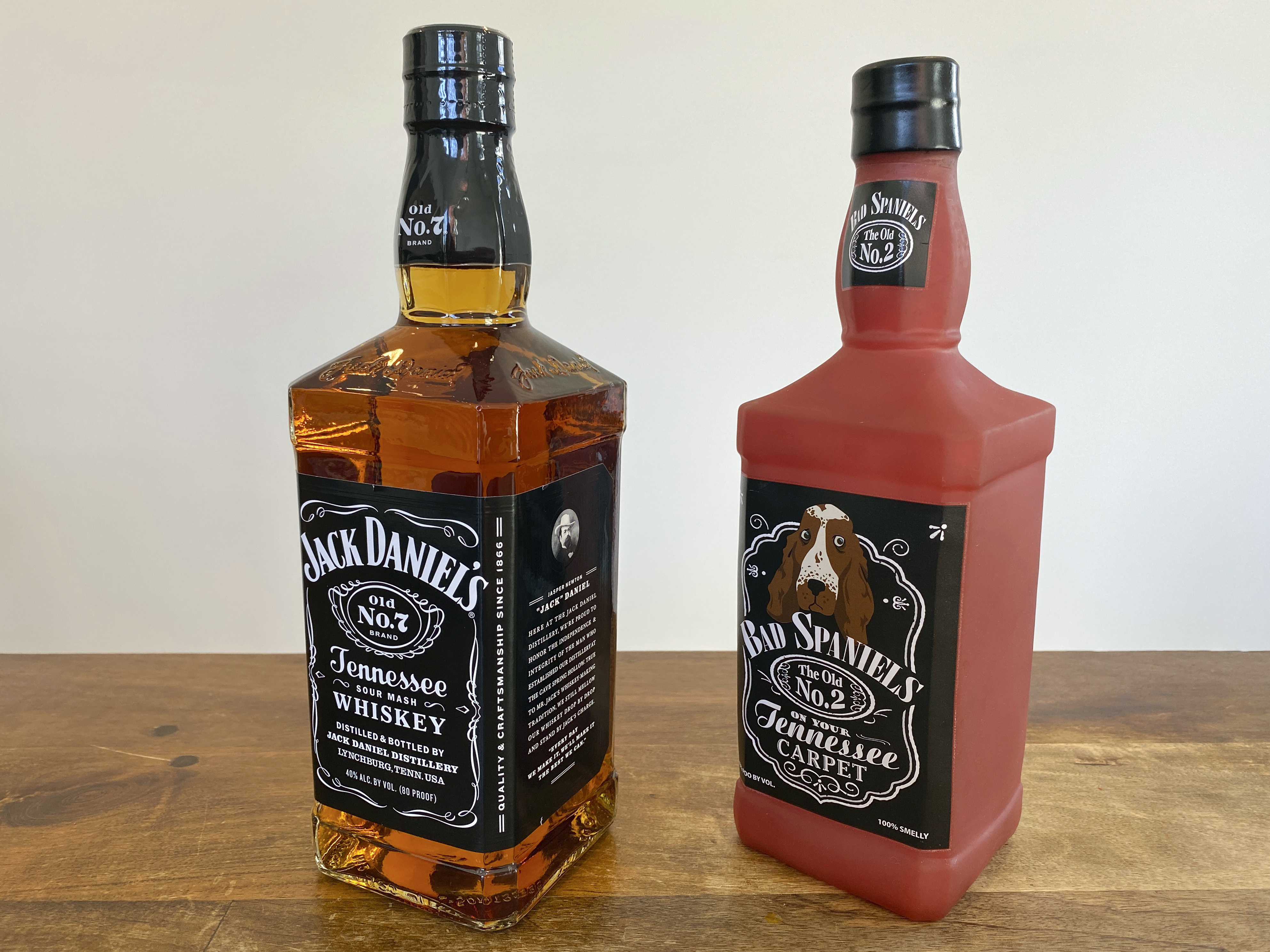
A free daily email with the biggest news stories of the day – and the best features from TheWeek.com
You are now subscribed
Your newsletter sign-up was successful
The Supreme Court has weighed in on a case involving a clash between Jack Daniel's whiskey and a dog squeaky toy that could have longstanding effects on American trademark and branding laws.
What were the basics of the case?
Jack Daniel's, the iconic Tennessee-based whiskey manufacturer, sued VIP Products LLC, the second-largest maker of dog toys in the country, over a squeaky toy sold by VIP that is a direct parody of a Jack Daniel's whiskey bottle. The toy is shaped and colored like a Jack Daniel's bottle, but features a picture of a dog and the words "Bad Spaniels" in place of "Jack Daniel's." The toy has also replaced the actual Jack Daniel's "40 percent alcohol by volume" wording with "43 percent poo by volume, 100 percent smelly."
The toy is part of VIP's "Silly Squeakers" line, which parodies common beverages as dog toys. This includes other toys that are clear parodies of alcohol bottles, including beer brands, whiskey, tequila, vodka, and gin.
The Week
Escape your echo chamber. Get the facts behind the news, plus analysis from multiple perspectives.

Sign up for The Week's Free Newsletters
From our morning news briefing to a weekly Good News Newsletter, get the best of The Week delivered directly to your inbox.
From our morning news briefing to a weekly Good News Newsletter, get the best of The Week delivered directly to your inbox.
The main question in the case was whether VIP should be held responsible for "potentially misleading customers into associating the product with the whiskey maker or tarnishing the company's famous trademark," Reuters explains. Jack Daniel's claimed the knockoff toy constituted a violation of brand protections.
Lawyers for Jack Daniel's argued that VIP's toy was detrimental to the whiskey company's brand, writing in their brief that VIP "sells products mimicking Jack Daniel's iconic marks and trade dress that mislead consumers, profit from Jack Daniel's hard-earned goodwill, and associate Jack Daniel's whiskey with excrement." VIP, meanwhile, said the opposite is true, and wrote in its own briefing that "freedom of speech begins with freedom to mock." The company insisted it was not violating any laws because "Bad Spaniels" is not its product — the dog toy itself is. "VIP uses a pretend trademark and pretend trade on a pretend label on a pretend bottle full of pretend contents," it says.
What happened in the case?
In a 9-0 decision that united liberal and conservative justices, the Supreme Court sided with Jack Daniel's, handing large brands a major win. The Court held that the law does not protect the use of "another's trademark as a trademark," when it comes to parody, Bloomberg reported.
Parody protections are "not appropriate when the accused infringer has used a trademark to designate the source of its own goods - in other words, has used a trademark as a trademark," Justice Elena Kagan wrote in the court's opinion.
A free daily email with the biggest news stories of the day – and the best features from TheWeek.com
The Supreme Court overturned a previous appeals court ruling that sided against Jack Daniel's. That court ruled that while the company's own image was protected under trademark laws, VIP had the right to parody it under the First Amendment. The appeals court wrote that while VIP used "Jack Daniel's trade dress and bottle design to sell Bad Spaniels," it also had an inherent right to convey humor through the spoof. The Supreme Court, though, has now given Jack Daniel's the last say.
Both the Biden administration and the Justice Department had sided with Jack Daniel's in the leadup to the Supreme Court's oral arguments. In a reverse view of the appeals court's decision, "the First Amendment does not confer any right to use another person's trademark, or a confusingly similar mark, as a source identifier for goods sold in commerce," the DOJ had argued, per CNN.
How could the decision alter the trademark landscape?
The Court's decision may have been a "victory for artists," Megan Bannigan, a partner at Debevoise & Plimpton, told Reuters. However, it was "also a victory for brands," Bannigan said, because it helped clarify that trademark tests don't apply "when branding is being used as a typical trademark to identify a source of goods without permission."
The case brought up First Amendment questions "about how far courts should go" in balancing "the needs of the marketplace with the demands of free speech." Vox reported. Given that trademark law necessarily limits free speech, the outlet said, "the marketplace would function less reliably if consumers cannot readily identify which products are genuine ... and which ones are knockoffs."
Ahead of the ruling, legal experts had "[predicted] economic doom" if Bad Spaniels were to prevail, Nina Totenberg, the Supreme Court correspondent for NPR, wrote. Former Solicitor General Gregory Garre had argued that giving VIP a free pass on trademark infringement "would deeply destabilize an economic system that is rightly the envy of the world."
Update June 14, 2023: This article has been updated to reflect the Supreme Court's decision.
Justin Klawans has worked as a staff writer at The Week since 2022. He began his career covering local news before joining Newsweek as a breaking news reporter, where he wrote about politics, national and global affairs, business, crime, sports, film, television and other news. Justin has also freelanced for outlets including Collider and United Press International.
-
 The environmental cost of GLP-1s
The environmental cost of GLP-1sThe explainer Producing the drugs is a dirty process
-
 Greenland’s capital becomes ground zero for the country’s diplomatic straits
Greenland’s capital becomes ground zero for the country’s diplomatic straitsIN THE SPOTLIGHT A flurry of new consular activity in Nuuk shows how important Greenland has become to Europeans’ anxiety about American imperialism
-
 ‘This is something that happens all too often’
‘This is something that happens all too often’Instant Opinion Opinion, comment and editorials of the day
-
 Supreme Court upholds California gerrymander
Supreme Court upholds California gerrymanderSpeed Read The emergency docket order had no dissents from the court
-
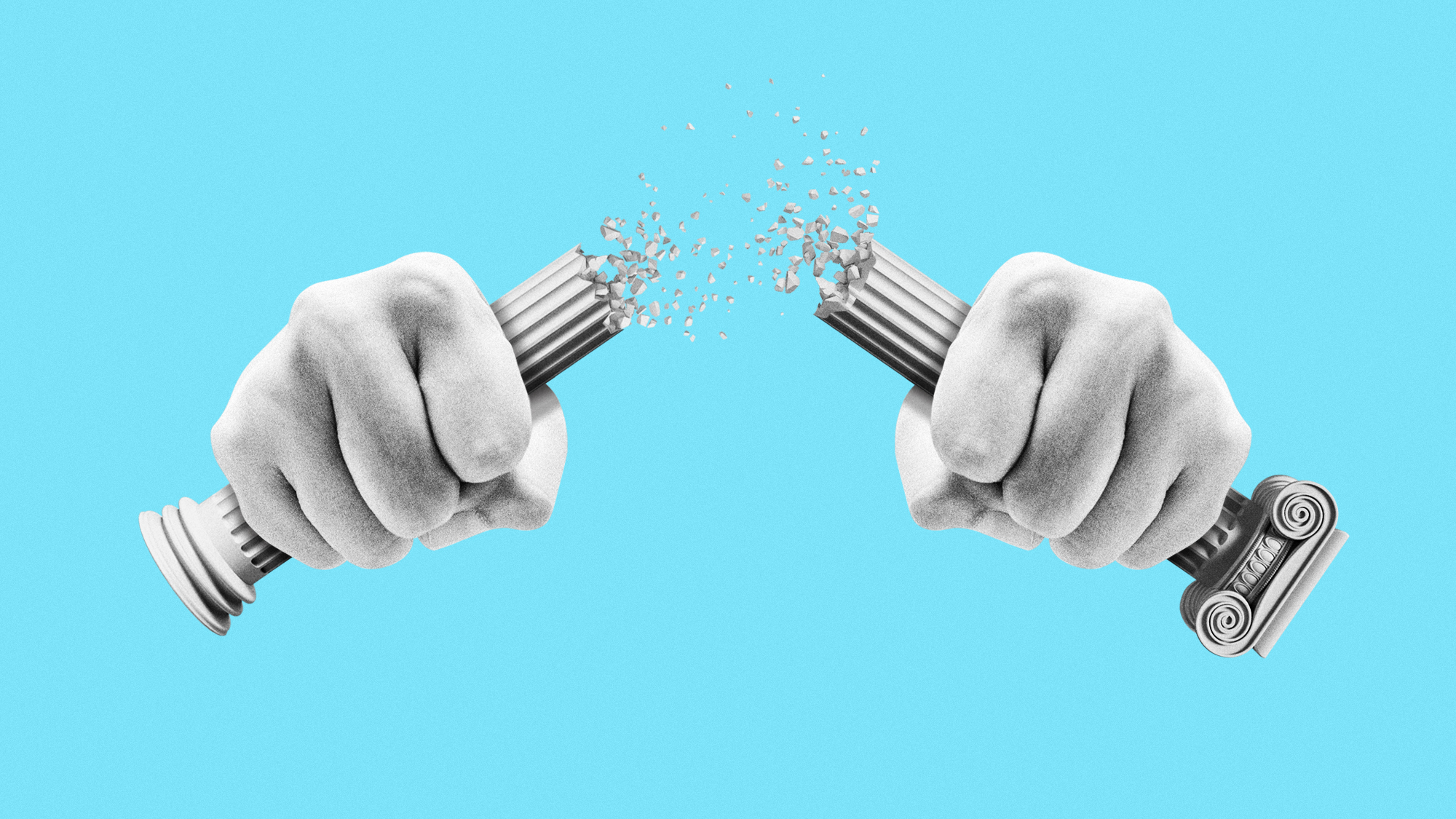 How robust is the rule of law in the US?
How robust is the rule of law in the US?TODAY’S BIG QUESTION John Roberts says the Constitution is ‘unshaken,’ but tensions loom at the Supreme Court
-
 The ‘Kavanaugh stop’
The ‘Kavanaugh stop’Feature Activists say a Supreme Court ruling has given federal agents a green light to racially profile Latinos
-
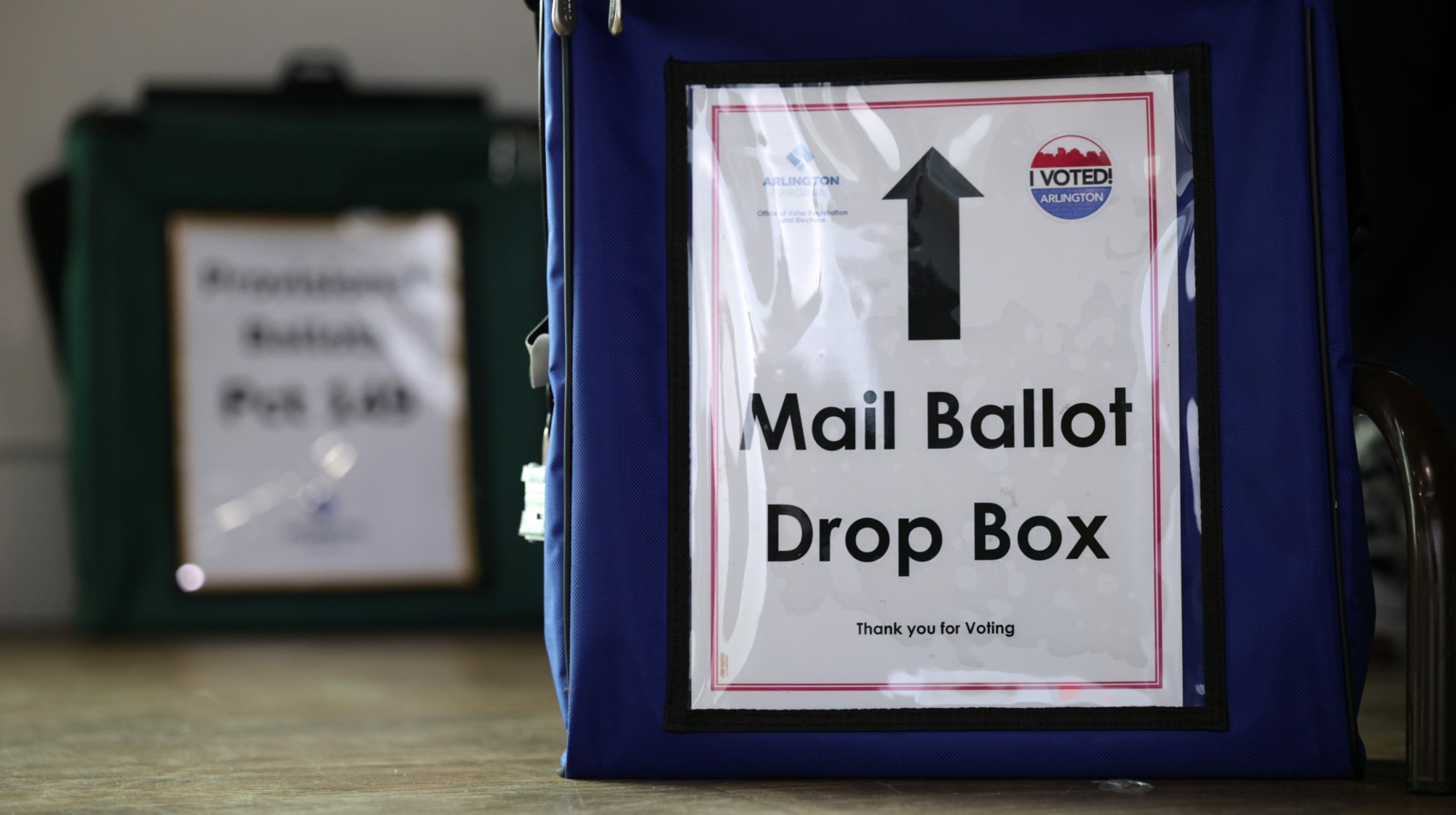 Supreme Court to decide on mail-in ballot limits
Supreme Court to decide on mail-in ballot limitsSpeed Read The court will determine whether states can count mail-in ballots received after Election Day
-
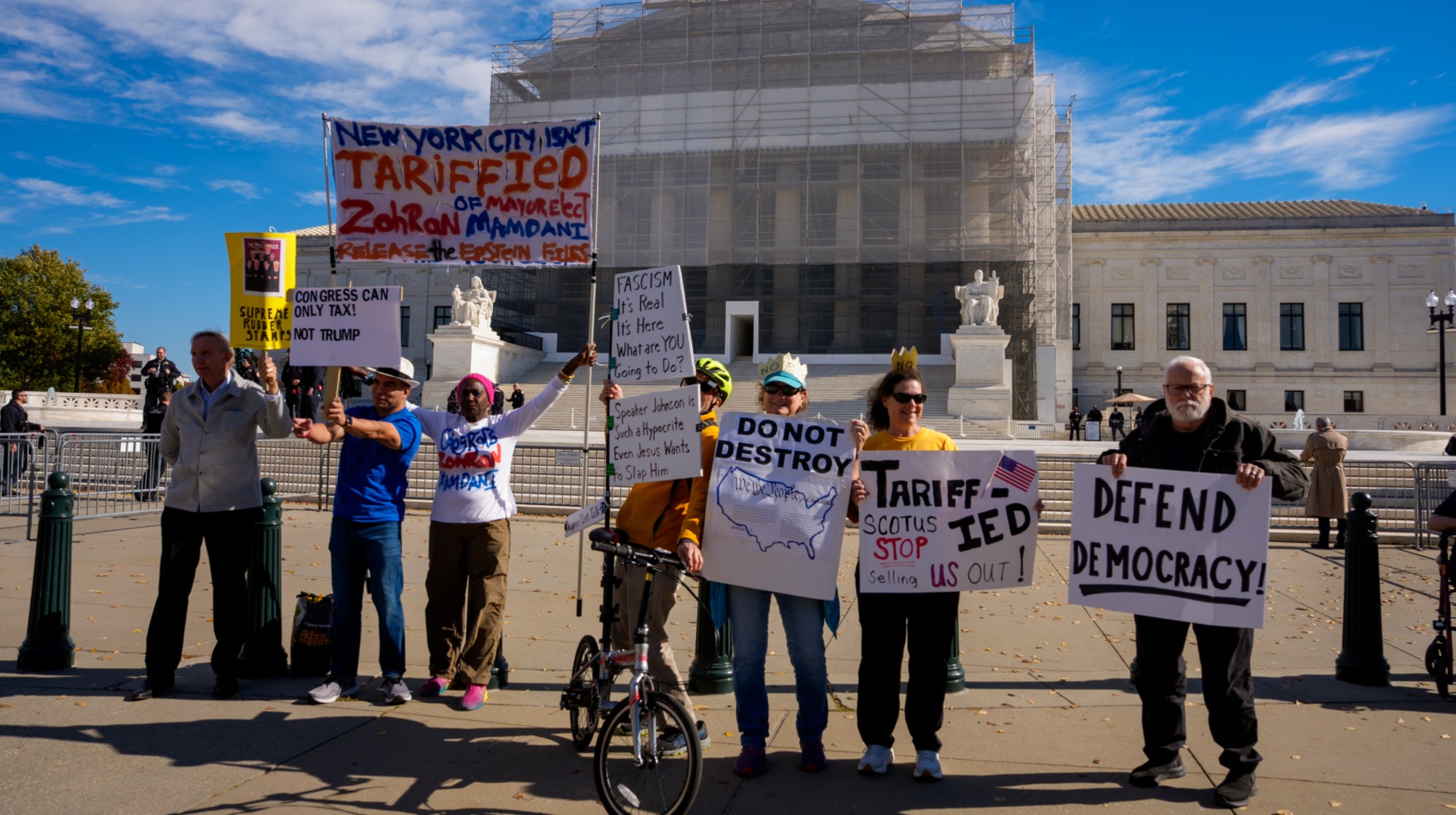 Trump tariffs face stiff scrutiny at Supreme Court
Trump tariffs face stiff scrutiny at Supreme CourtSpeed Read Even some of the Court’s conservative justices appeared skeptical
-
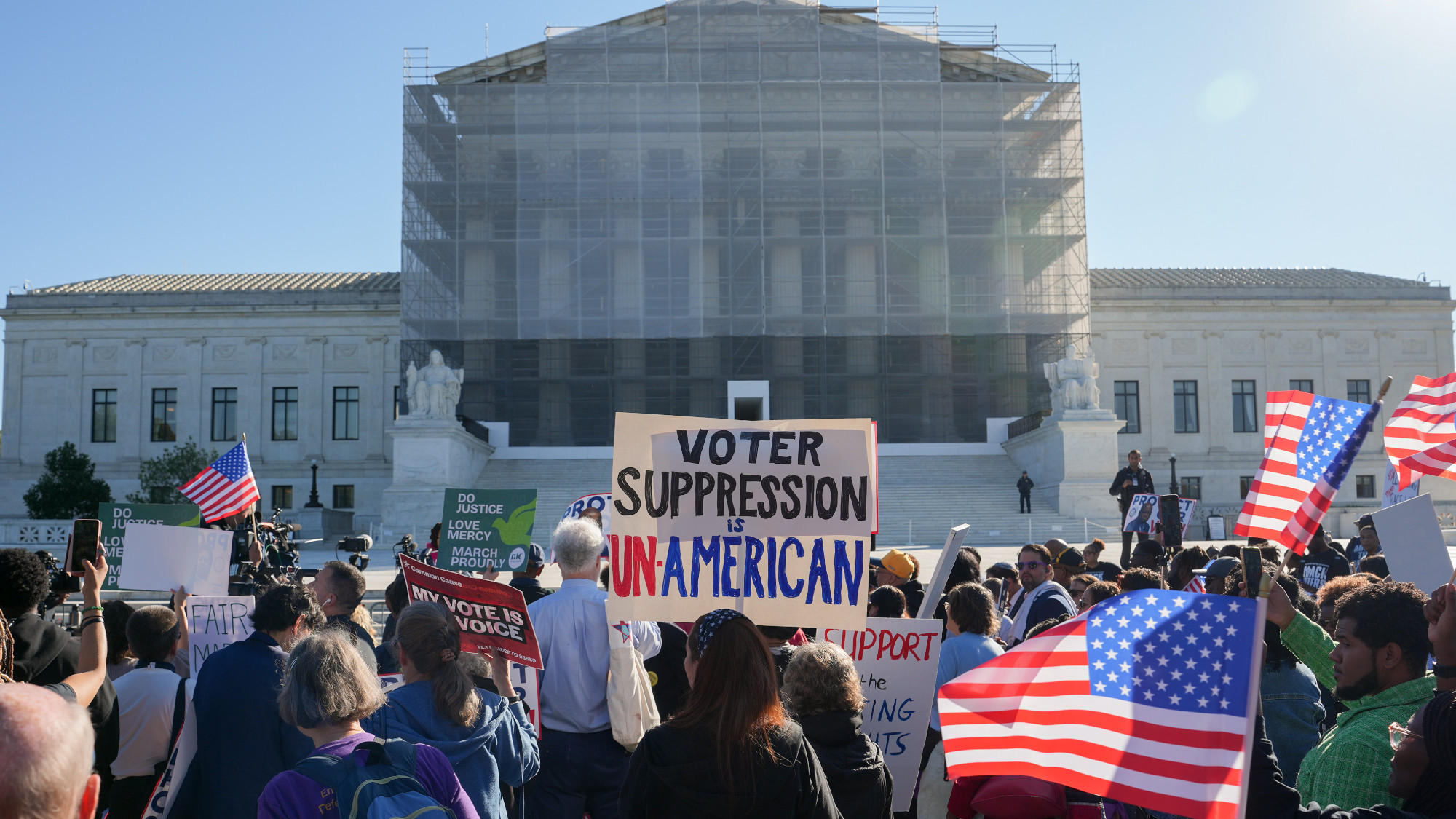 Voting Rights Act: SCOTUS’s pivotal decision
Voting Rights Act: SCOTUS’s pivotal decisionFeature A Supreme Court ruling against the Voting Rights Act could allow Republicans to redraw districts and solidify control of the House
-
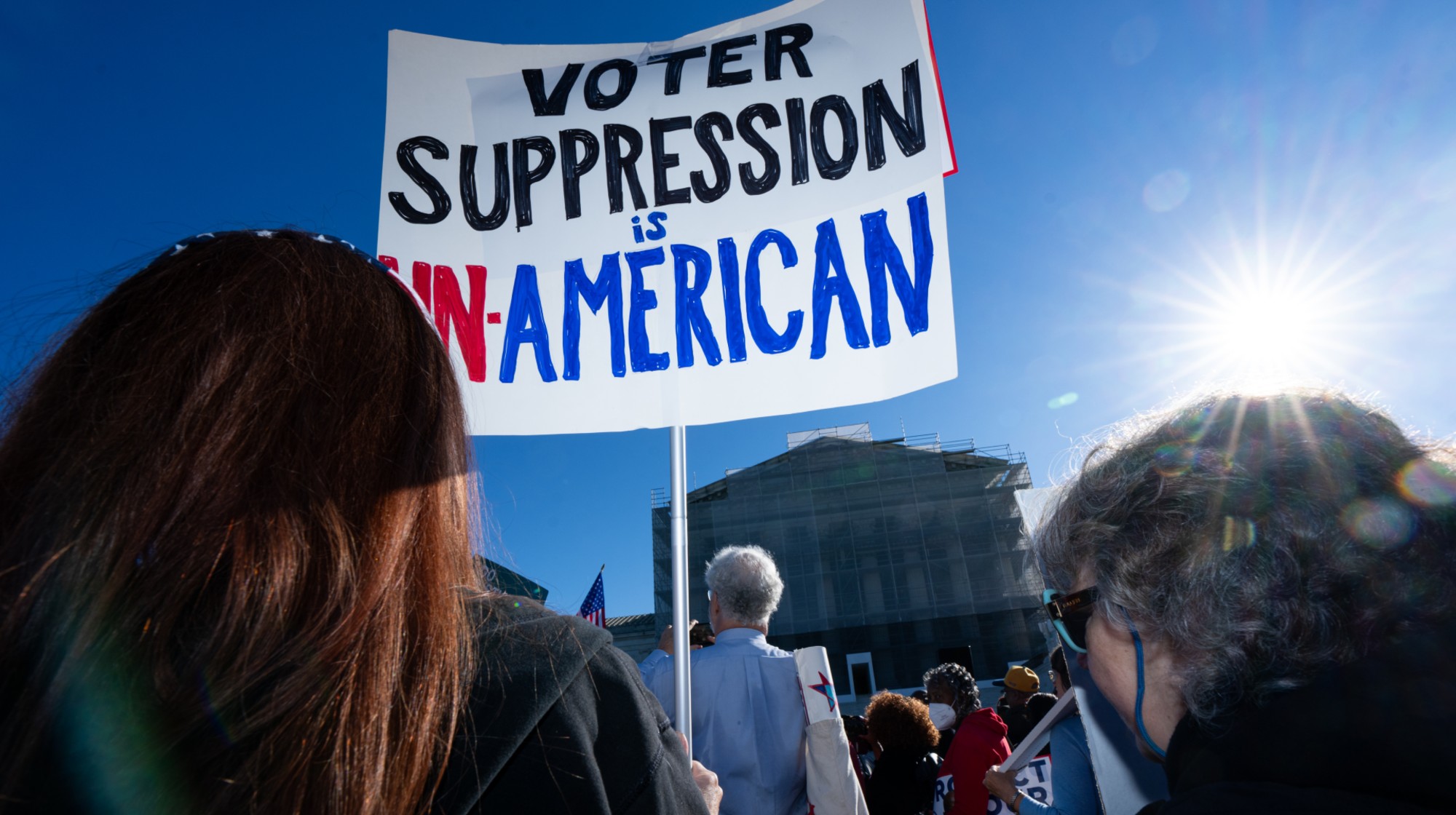 Supreme Court points to gutting Voting Rights Act
Supreme Court points to gutting Voting Rights Actspeed read States would no longer be required to consider race when drawing congressional maps
-
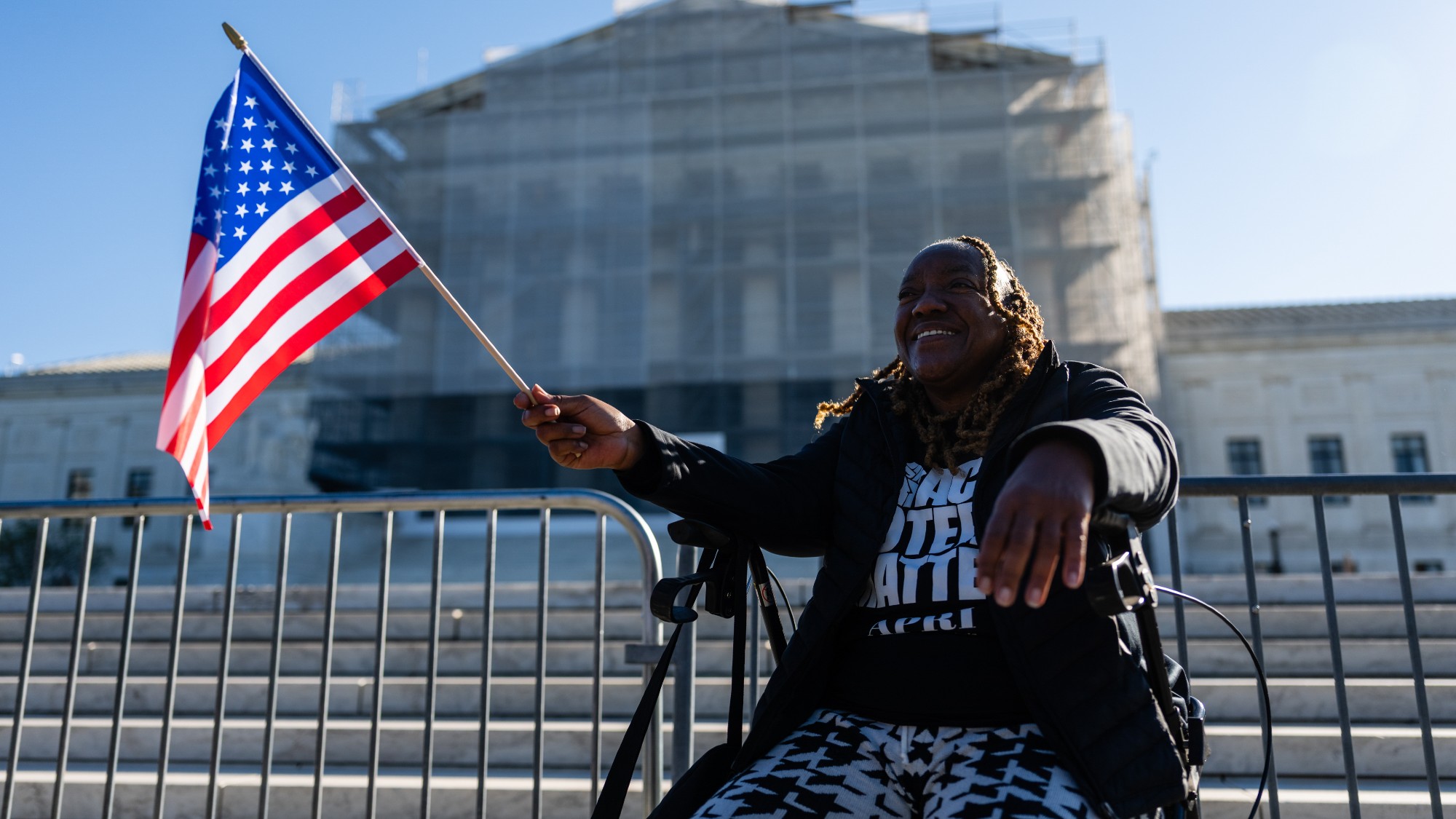 ‘An exercise of the Republicans justifying their racist positions’
‘An exercise of the Republicans justifying their racist positions’instant opinion Opinion, comment and editorials of the day
